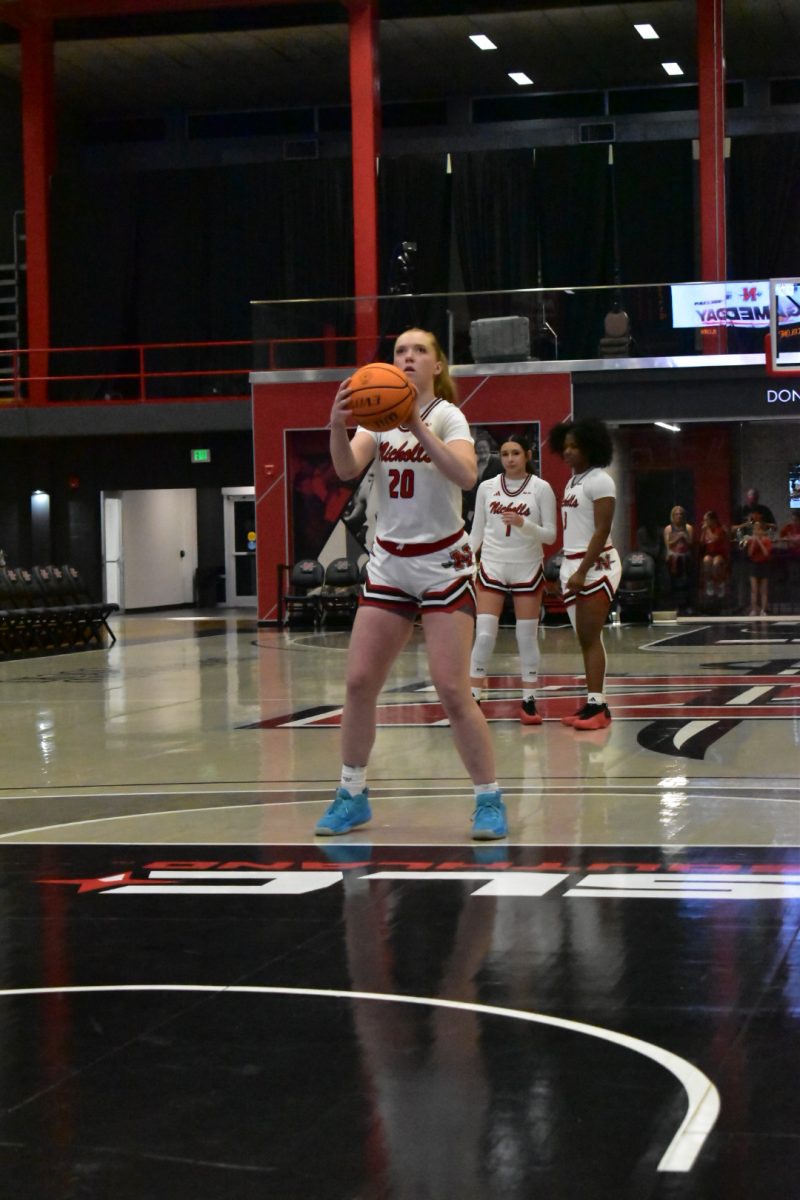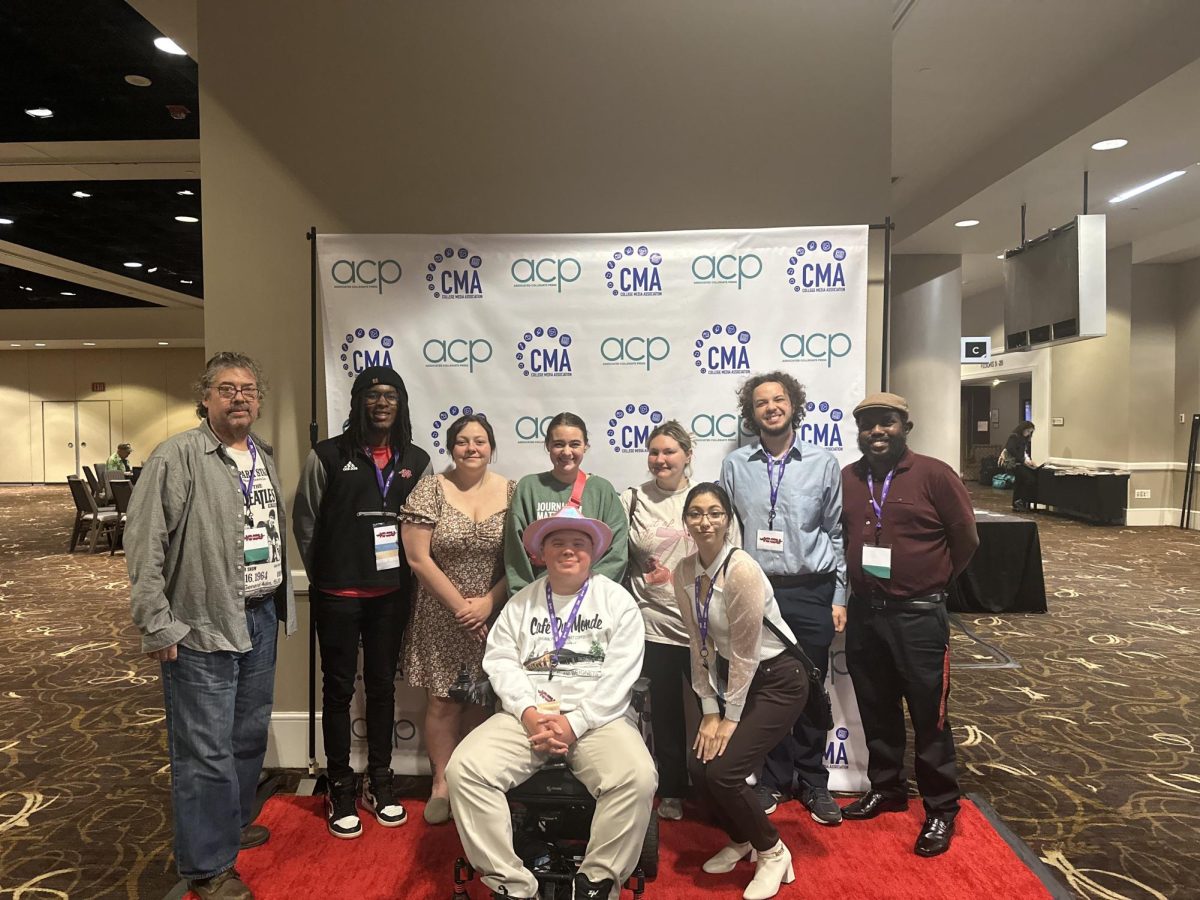Cristina Castro has been frequently asked questions she considers silly and sometimes irritating. When she tells many people that she’s not from the United States, they immediately treat her differently.”How do you like it here?” they’ll ask at a slow pace, as though Castro needs to reads lips to understand what they are asking. They’ll even ask if she wore jeans before she came to the United States, or if she drove a car in her homeland.
One student, after watching the Discovery Channel, asked Castro if it is true that Bolivians live naked in trees and eat each other. Sarcastically, she told him yes. The student replied, “Oh, really,” and walked away frightened.
“Of course we drive, and of course we do things that many Americans do,” said Castro, a business administration graduate student from Bolivia who previously attended Oklahoma State University. “Some people tend to think we are barbarians or from another planet, but that’s not true. Almost everyone around the world is civilized.”
Castro is not alone. She’s one of 77 international students enrolled at Nicholls this semester, representing 35 nations. Led by Canada, France and Japan, with more than 10 students each, most international students say the friendliness and hospitality of Louisiana residents outweighs the misunderstood perceptions of their nation caused by the media.
“Overall, people here are very friendly, and they make eye contact and smile at you,” Castro said. “That’s good, and I like that about Americans. Back home, people would think you’re flirting with them if you did that.”
International students mingle with one another through the Nicholls International Community, a student organization that brings foreign students together to socialize and plan events to better educate one another and Nicholls of their unique cultures. With Castro as president, the group meets Fridays at 2 p.m. in the Student Union to discuss possible events and fundraisers for the group.
“I think NIC is a very good thing,” said Vien Huynh, an English education sophomore from Vietnam and NIC’s vice president. “We can help new international students fit in here and feel like they are a part of something. I’ve seen many students come here and feel lost because of the different cultures. Through the group, they can feel much better about Nicholls.”
NIC had been inactive for a couple years until it was re-instated last April by Castro, Huynh and Marilyn Gonzales, director for international student admissions. Last semester, NIC hosted International Student Week with several videos, displays and booths around campus showing the different cultures represented at Nicholls.
“It was one of the best things we’ve ever done,” Castro said. “It went extremely well, and many students were amazed that Nicholls had a mixture of so many nations and cultures.”
Although students have many reasons why they chose to study in the United States, Huynh said most students believe better long-term career opportunities will arise in the states more than overseas. The standards and value of education are much higher in the United States, and with more freedoms, they are able to open their minds and explore other points-of-view on various life issues and make their own choices, Huynh said.
Some international students live on campus or with host families, and others have the necessary finances to live on their own, usually in apartments.
For Kentaro Imai, a freshman from Japan who said he believes the United States draws immigrants because of its economic stability, adjusting to the American culture is not as difficult as it may seem. The only challenging part, he said, is learning to speak the English language well enough to communicate. Imai goes back home during the summer.
“Japan is becoming influenced to be more like the United States every day,” said Imai, who admits he enjoys eating Louisiana shrimp, but sorely misses consuming Sushi daily back home. “American TV shows, movies, actors and actresses are all popular in Japan. We love Americans. We are kind of used to the way they think already.”
Emiri Shimada, a freshman also from Japan, but from a different region than Imai, feels studying in the United States will help her achieve many goals in life. The biggest difference from college life in Japan, she said, is that Japanese colleges do not have residence halls. Students must commute daily to school.
“It was difficult to adjust when I first came here, but I started getting involved with many activities around campus,” said Shimada, a member of Phi Mu sorority who misses her friends and family the most back home. “Since then, I’ve felt more comfortable here, and I like it.”
Mauricio Castro, a pre-engineering sophomore born in Brazil who later moved to Bolivia, said he enjoys life in America, but he misses riding his 4-wheeler through the jungles and digging for fossils, one of his favorite hobbies. He said he also misses playing soccer daily, his favorite sport.
“What I like best about the United States, though, is that there’s a mixture of people here,” said the 19-year-old who openly admits he is single. “People back home are the same. They listen to the same music and go out to the same clubs. Here, you have rap, rock and country music. Diversity is the best thing in the United States.”
And no, neither Cristina or Mauricio is related to Fidel Castro.







